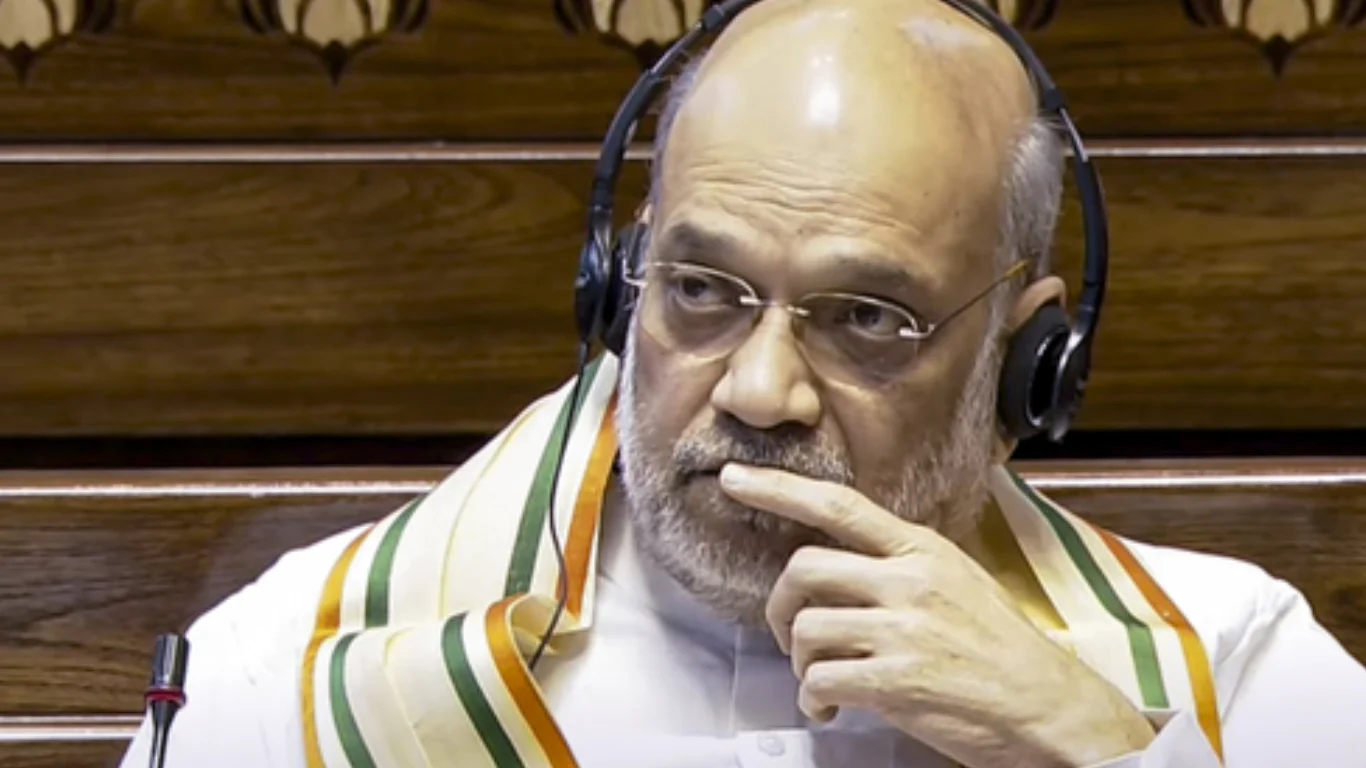
Union Home Minister Amit Shah’s recent directive to all Chief Ministers to identify Pakistani nationals in their respective states comes in the wake of the deadly Pahalgam terror attack, which claimed the lives of 26 individuals, mostly tourists. The tragic incident, which occurred on April 22, 2025, has led to widespread condemnation, and the Indian government has been taking swift actions to address national security concerns, especially regarding foreign nationals in the country.
Amit Shah’s conversation with the Chief Ministers on Friday marked an important step in the government’s response. He urged the state leaders to identify any Pakistani nationals living in their regions and report them to the Centre. The move is aimed at ensuring the timely cancellation of their visas and facilitating their swift return to Pakistan. This call for action follows heightened concerns over security, as Pakistan has long been suspected of harboring individuals involved in various acts of terrorism against India.
According to Shah, the identification and expulsion process is critical to maintaining India’s national security and ensuring the safety of its citizens. He emphasized that the government is committed to taking all necessary steps to prevent any further attacks. He instructed the state governments to take immediate measures to identify Pakistani nationals and expedite the process of their deportation, ensuring they are sent back to their home country.
The government’s decision aligns with recent moves made by the Ministry of External Affairs (MEA) regarding Pakistani nationals currently in India. On April 24, the MEA issued a stern press release stating that all existing visas granted to Pakistani nationals will be revoked effective from April 27, 2025. This includes both tourist and business visas, with a notable exception for medical visas. Medical visas, however, will only remain valid until April 29, after which Pakistani nationals will have to leave India. The MEA also made it clear that anyone in India under the SAARC visa exemption scheme (SVES) must vacate the country within 48 hours.
This new policy applies to all Pakistani nationals present in India, and the government has put in place procedures to ensure their swift return. It is part of a broader effort to tighten controls on foreign nationals and enhance vigilance against cross-border terrorism, which remains a significant concern in India. The decision to revoke visas and expel Pakistani nationals follows India’s growing frustration over persistent cross-border terrorism, including attacks like the one in Pahalgam.
The move comes amid calls for stronger security measures in Jammu and Kashmir, where violence and terrorist activities have remained high despite extensive military presence. The terrorist attack in Pahalgam, a popular tourist spot in Jammu and Kashmir, has sparked outrage both within India and internationally. The victims of the attack, which primarily included civilians and tourists, were killed by gunfire during the attack, and many others were injured. The attack targeted a peaceful crowd, adding to the ongoing tension in the region.
The Indian government has strongly condemned the attack and called for accountability. Prime Minister Narendra Modi expressed his sorrow for the victims’ families, vowing to bring those responsible to justice. The attack has further intensified calls for stricter border control policies, especially with regard to Pakistani nationals.
For years, India has been dealing with the challenge of Pakistani nationals allegedly participating in or facilitating acts of terrorism on Indian soil. Previous attacks in regions such as Jammu and Kashmir have been traced back to individuals or groups linked to Pakistan-based terrorist organizations. The government’s new directive and visa revocation measures are seen as part of a more assertive strategy to prevent such infiltration and ensure that no individuals involved in terrorism have the freedom to operate within Indian borders.
Local leaders, including Chief Ministers of the states, have expressed their support for the central government’s measures. They have pledged to work together with the Ministry of Home Affairs to identify and report foreign nationals and ensure that India’s sovereignty and security are protected. This collaborative approach between the Centre and state governments reflects a unified stance against terrorism and a commitment to ensuring public safety.
This directive to Chief Ministers also follows the Indian government’s broader strategy to minimize the risk of foreign involvement in acts of terror. By revoking visas and limiting the movement of Pakistani nationals, the government aims to reduce the scope for hostile elements to enter or remain in the country. As Pakistan has not taken significant steps to address terrorism emanating from its soil, India’s decision to ramp up these security measures is seen as a necessary response.
In addition to the visa revocation, India is also calling for increased vigilance and reporting of suspicious activity. The government has called on the public, law enforcement agencies, and local authorities to be more proactive in identifying individuals with possible links to terrorism, particularly those who may be illegally staying in the country or involved in anti-national activities. The Ministry of Home Affairs has indicated that it will continue to work closely with intelligence agencies to monitor the situation closely.
While the move to revoke visas and expel Pakistani nationals is seen as a necessary step for national security, it has raised concerns among some human rights advocates. There have been discussions about the humanitarian implications of such large-scale expulsions, particularly for those who may be in India for medical treatment or other legitimate reasons. However, the government has made it clear that the security of Indian citizens remains its top priority.
In the aftermath of the Pahalgam terror attack, Rahul Gandhi, the leader of the opposition, also visited Kashmir to meet the victims and express solidarity with the affected families. He visited the Army’s Base Hospital in Badamibagh Cantonment in Srinagar, where the injured were being treated. Gandhi’s visit was an effort to provide support to the victims and show his concern for the situation in Kashmir, which continues to be a flashpoint for security challenges.

















